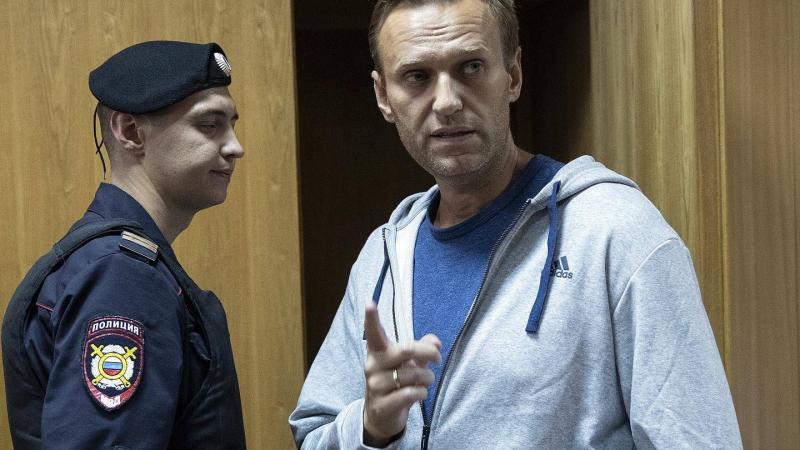A court in Moscow has sentenced Russian opposition figure Alexei Navalny to three and a half years in prison for a fraud case for which he had previously received a suspended sentence.
Russia Today reported that the ruling was made based on a request from the Federal Penitentiary Service, which confirmed that Navalny had repeatedly and systematically violated the conditions of his suspended sentence, even before being transferred to a hospital in Germany last summer, without providing any convincing excuses. The channel added that a representative from the penitentiary service noted that Navalny had breached public order about 60 times since he was given the suspended sentence nearly six years ago. The service requested to replace the suspended sentence with three and a half years in prison, along with a fine of 500,000 rubles (approximately 6,600 dollars).
Navalny's lawyer, Vadim Kobzev, stated that the defense intends to appeal the court ruling within the next 10 days, a period during which the sentence will not be enforced. The Novosti agency reported that if the appeal fails, Navalny will serve only 2.8 years in prison, taking into account the 12 months he spent under house arrest due to a previous ruling in the "Ivy Rocher" case, which he violated with his movements, necessitating his current imprisoned sentence.
The trial took place amid tight security measures in the streets surrounding the courthouse, where police detained several protesters who violated security orders, with human rights sources mentioning over 200 arrests, while Novosti reported from a correspondent on-site that detentions were rare and limited. Representatives from several foreign embassies attended the court session, in an action described by the Russian Foreign Ministry as interference in Russia's internal affairs, exposing the West's self-aggrandizement in its attempts to deter Russia.
In response to the Russian court's decision, the U.S. State Department expressed deep concern over the ruling against opposition figure Alexei Navalny. The department added that Washington is closely coordinating with allies and partners to hold Russia accountable following Navalny's sentencing. The United Kingdom also called for Navalny's immediate and unconditional release after the sentencing. The Russian Ministry of Foreign Affairs commented on international responses to the court's decision, stating that Moscow will continue to respond to the actions of Western diplomats regarding Navalny's case.
In its response to statements from the German Foreign Minister concerning the ruling against Navalny, the Russian Foreign Ministry clarified that it has yet to receive responses to the questions it posed regarding Navalny. The Russian Foreign Ministry also commented on a potential increase in sanctions related to the court's decision against Navalny by saying, "The West does not need a reason."
Navalny was detained at a Moscow airport on January 17 upon his arrival from Berlin, where he had received treatment following his alleged poisoning last August. After Navalny's detention, his supporters organized a series of unauthorized protests in various Russian cities, some of which resulted in clashes with the police.




